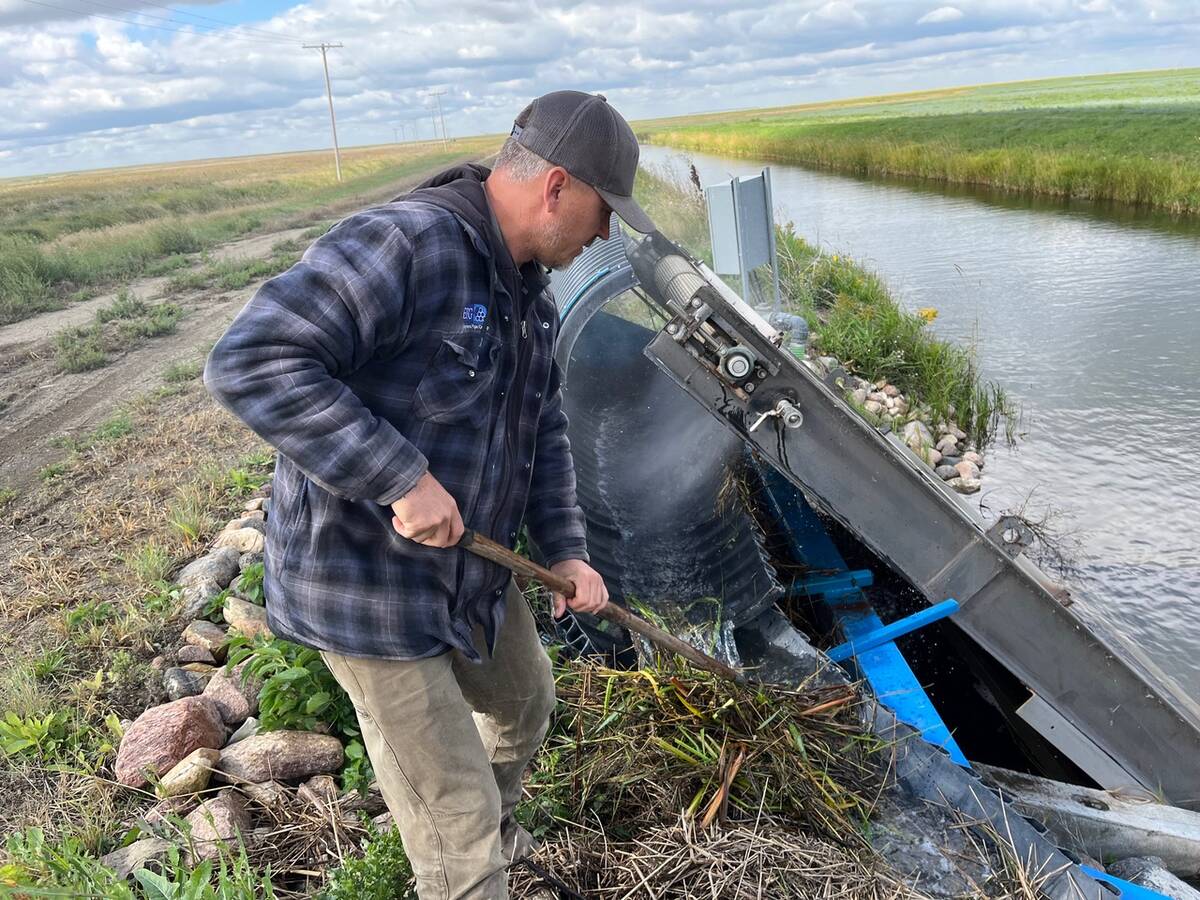Company pledges to use sustainably sourced products
A European crop processor says Canadian farmers are refusing to fill out a form required by one of the world’s largest food companies.
Jan Braet, an importer for Alimex Europe BV, a processor from the Netherlands, urged growers attending the pulse portion of Crop Production Week held in Saskatoon Jan. 5-12, to fill out Unilever’s 90-page sustainability form.
Canadian exporters who deal with Braet were soundly rejected by growers when they tried to get them to complete the forms this fall.
“They used the F-word but its not farmer,” Braet told growers during the question and answer session of the market outlook session of Pulse Days.
Read Also

Saskatchewan farmer uses tile drainage to manage water
The integration of both irrigation and tile drainage results in higher yields, water efficiency, improved soils and less nutrient runoff, says one producer.
Session moderator Kevin Hursh asked Braet if he’s willing to pay more for product accompanied by a completed sustainability form.
“No, but we’ll take it,” responded Braet.
Hursh replied that may not be reason enough for farmers.
“If we can go somewhere else and get the same price and not fool with the darn form, why wouldn’t we?” he said.
Braet said it may be a seller’s market for a crop like peas today but in two or three years it will be a buyer’s market and growers will be happy to have a buyer.
Unilever has pledged to its customers that by 2015, 50 percent of the agricultural raw material it uses in its food products will be sustainably sourced and by 2020 it will be 100 percent. That is up from 14 percent in 2010.
Braet stressed that Unilever’s initiative provides Canadian growers with a competitive advantage because the vast majority of Canadian crops are sustainably produced whereas that is not the case in many other countries.
“This is not a bean area but in beans they will drop China because it is not sustainable. They will come to the U.S. and Canada,” he told the group of Saskatchewan farmers.
Denis Trémorin, director of sustainability with Pulse Canada, would like to see companies like Unilever move away from 90-page forms and towards a metrics-based system of sustainability.
Pulse Canada is working with General Mills, the Canadian Canola Growers Association, Ducks Unlimited, CropLife Canada and the Prairie Oat Growers Association on a Canadian sustainability calculator that measures on-farm greenhouse gas emissions.
Trémorin said consumers roll their eyes when farm groups talk about agronomic practices like no-till and precision farming but they understand greenhouse gas reductions.
Unilever has developed its own calculator but it doesn’t take into account growing conditions in Western Canada. The cool and dry climate dramatically reduces nitrous oxide emissions.
Trémorin hopes Canadian agriculture can find common ground with Unilever because it is a major buyer of soy and canola products.
The Unilever initiative is unfolding faster than many anticipated. Knorr, one of company’s main brands, wants many of its soups, stocks and sauces to be made from sustainably sourced agricultural products by 2015. A lot of pulse crops are used in Knorr’s products.
“This is really two crops away, so this is urgent,” said Braet.
He said he doesn’t fathom why growers are reluctant to fill out the form. While the 90-page document appears onerous, many questions pertain to topics like child labour practices and deforestation, which don’t apply to most Canadian growers.
“It’s half a day’s work to fill it in and it’s winter time now. They all have time to fill it in.”
The following year the form be-comes a more manageable four pages.
Braet said Unilever’s sourcing program is the tip of the iceberg. He expects other major food companies like Nestle and Heinz will replicate it.
“This is new today but I think that it will be common in 10 years,” he said.

















